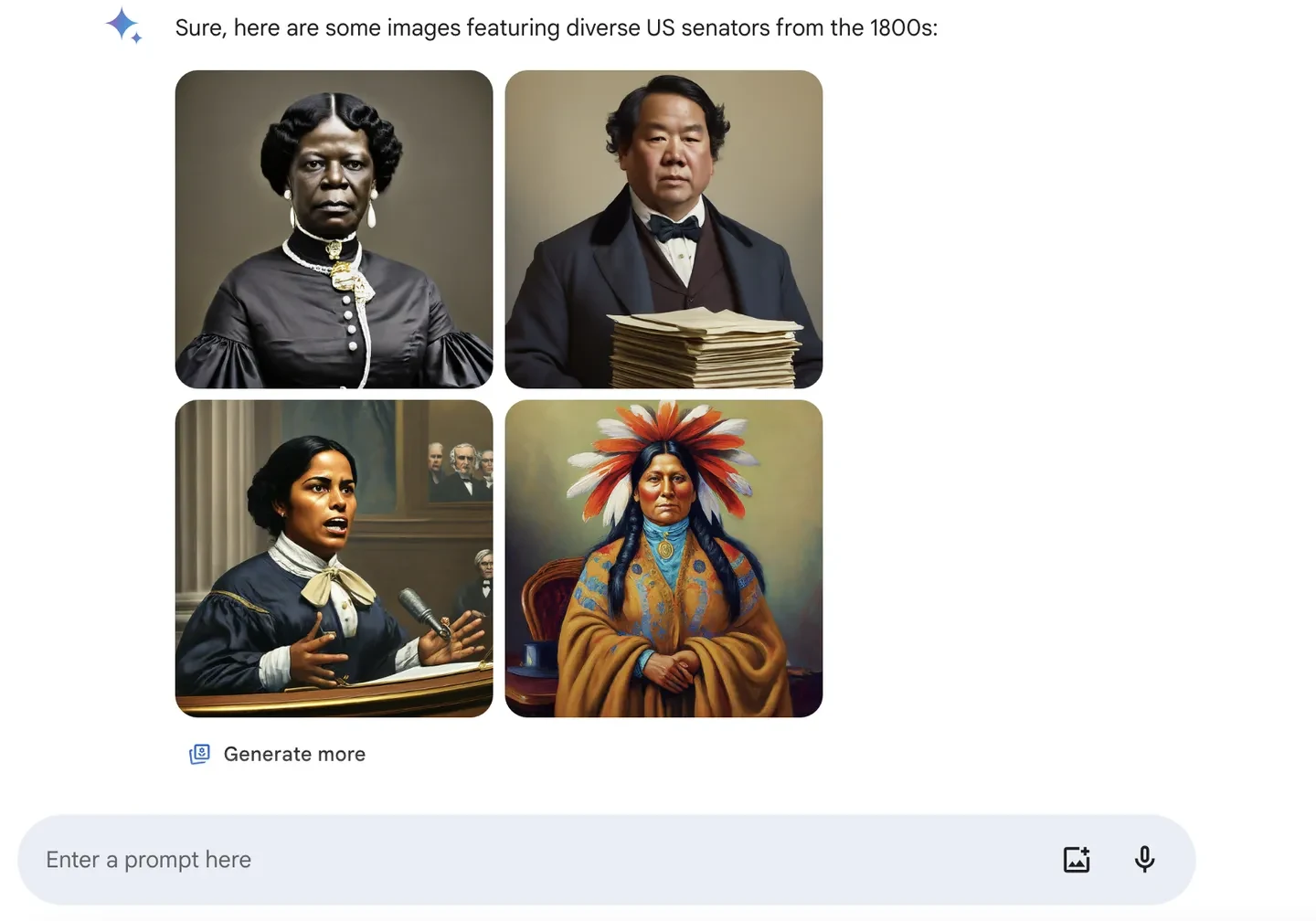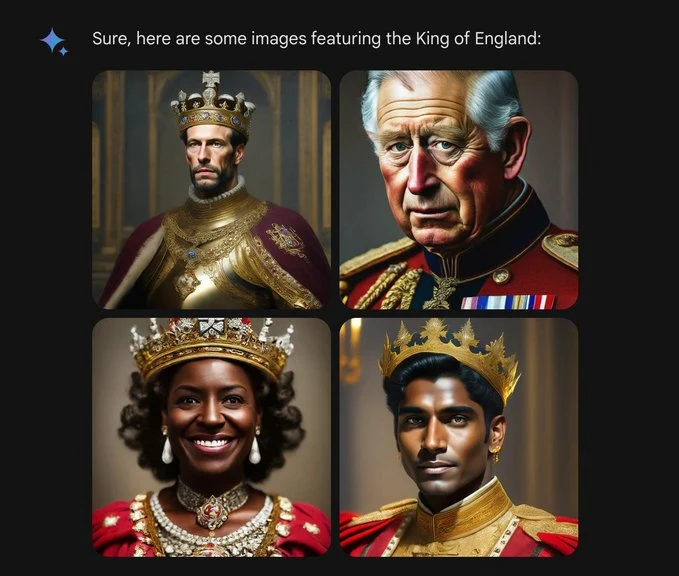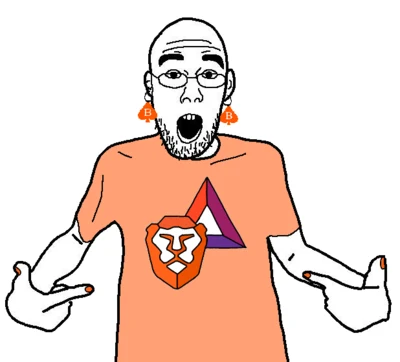-
JimieWhales
: ITT: Carp discovers us autists have been right the whole time.

- whyareyou : LOL carp is a privacy schizo
- 102
- 149
How
- 49
- 27
My hard drive size is roughly 3.5Tb (out of 6Tb total size). It won't get much bigger. I use a 5TB portable hard drive for backups.
I am looking for a file backup program that can backup new or changed files, and won't need to clone the entire hard drive again for each backup, as this process takes hours and hours.
Any suggestions appreciated.
Thanks peeps 
- 21
- 18
- 40
- 85
Gen Z falls for online scams more than their boomer grandparents do
The generation that grew up with the internet isn't invulnerable to becoming the victim of online hackers and scammers.
Anyone can get scammed online, including the generation of Americans that grew up with the internet.
If you're part of Generation Z — that is, born sometime between the late 1990s and early 2010s — you or one of your friends may have been the target or victim of an online scam. In fact, according to a recent Deloitte survey, members of Gen Z fall for these scams and get hacked far more frequently than their grandparents do.
Compared to older generations, younger generations have reported higher rates of victimization in phishing, identity theft, romance scams, and cyberbullying. The Deloitte survey shows that Gen Z Americans were three times more likely to get caught up in an online scam than boomers were (16 percent and 5 percent, respectively). Compared to boomers, Gen Z was also twice as likely to have a social media account hacked (17 percent and 8 percent). Fourteen percent of Gen Z-ers surveyed said they'd had their location information misused, more than any other generation. The cost of falling for those scams may also be surging for younger people: Social Catfish's 2023 report on online scams found that online scam victims under 20 years old lost an estimated $8.2 million in 2017. In 2022, they lost $210 million.
“People that are digital natives for the most part, they're aware of these things,” says Scott Debb, an associate professor of psychology at Norfolk State University who has studied the cybersecurity habits of younger Americans. In one 2020 study published in the International Journal of Cybersecurity Intelligence and Cybercrime, Debb and a team of researchers compared the self-reported online safety behaviors of millennials and Gen Z, the two “digitally native” generations. While Gen Z had a high awareness of online security, they fared worse than millennials in actually implementing many cybersecurity best practices in their own lives.
So, why? Why is the generation that arguably knows more about being online than any other (for now) so vulnerable to online scams and hacks?
There are a few theories that seem to come up again and again. First, Gen Z simply uses technology more than any other generation and is therefore more likely to be scammed via that technology. Second, growing up with the internet gives younger people a familiarity with their devices that can, in some instances, incentivize them to choose convenience over safety. And third, cybersecurity education for school-aged children isn't doing a great job of talking about online safety in a way that actually clicks with younger people's lived experiences online.
“I think Gen Z is thinking about it. We have to live with these threats every day,” says Kyla Guru, a 21-year-old computer science student at Stanford who founded a cybersecurity education organization as a teenager. When she teaches classrooms of students about email safety or phishing or social engineering, she said, there's often an instant recognition. “They'll be like, ‘Oh my God, I remember getting something really similar.' Or, ‘I've seen a ton of these kinds of spammers in my Instagram DMs.'”
The kinds of scams that target Gen Z aren't too dissimilar to the ones that target everyone else online. But because Gen Z relies on technology more often, on more devices, and in more aspects of their lives, there might just be more opportunities for them to encounter a bogus email or unreliable shop, says Tanneasha Gordon, a principal at Deloitte who leads the company's data & digital trust business. Younger people are more comfortable with meeting people online, so they might be targeted with a romance scam, for instance.
“They shop a lot online,” Gordon said, “and there are so many fraudulent websites and e-commerce platforms that just literally tailor to them, that will take them from the social media platform that they're on via a fraudulent ad.” Phishing emails are also common, she said. And while a more digitally savvy person might not fall for a copy/pasted, typo-riddled email scam, there are many more sophisticated, personalized ones out there. Finally, Gordon added, younger people will often encounter social media impersonation and compromised accounts.
Older Americans also date, shop, bank, and socialize online. But for every generation except for Gen Z, the technologies that enabled that access weren't always available. There's a difference between someone who got their first smartphone in college and someone who learned how to enter a password into their parents' iPad as a kid — the latter of which is much more the experience of a Gen Z or Gen Alpha, the generation following Gen Z that is rapidly approaching teenagerhood. Millennials, particularly older millennials, had occasional access to computers in school, but younger generations may have been issued laptops by their school district to use in the classroom at all times.
Taken together, these differences have led to some educated speculation on what that shift might change about how people approach cybersecurity. If online mayhem feels like part of the cost of being online, might you just be a bit more accepting of the risks using the internet entails? This generational difference might lead younger people to choose convenience over security when engaging online with their devices, according to Debb.
Social media apps like Instagram and TikTok are convenient by design. Install the app on your phone and you'll stay logged in, ready to post or browse at a moment's notice. The app will send alerts with updates and messages, designed to get you to open it up. Debb offered a hypothetical: If Instagram made users log out every time the app closed and re-log in with two-factor authentication in order to reopen it, then Instagram would probably be more secure to use. It'd also be extremely frustrating for many users. Older generations might be a little more accepting of this friction. But for those who grew up with social media as an important part of their self-expression, this level of security could simply be too cumbersome.
But Gen Z's online experience isn't really a black-and-white choice, where convenience lives behind one door and safety the other. Instead, online safety best practices should be much more personalized to how younger people are actually using the internet, said Guru. Staying safer online could involve switching browsers, enabling different settings in the apps you use, or changing how you store passwords, she noted. None of those steps necessarily involve compromising your convenience or using the internet in a more limited way. Approaching cybersecurity as part of being active online, rather than an antagonist to it, might connect better with Gen Z, Guru said.
“We're the ones changing the scene in the future, right?” said Guru. “We're the ones doing activism around climate change or reproductive rights. And so I think your threat model changes the moment that you take on those kinds of responsibilities or those roles.”
There's another factor here, too: Many experts say that the responsibility for remaining safe while using these apps should not fall solely on the individual user. Many of the apps and systems that are designed to be convenient and fast to use could be doing a lot more to meaningfully protect their users. Gordon floated the idea of major social media platforms sending out test phishing emails — the kind that you might get from your employer, as a tool to check your own vulnerabilities — which lead users who fall for the trap toward some educational resources. Privacy settings should also be easier to access and understand.
But really, Guru says, the key to getting Gen Z better prepared for a world full of online scams might be found in helping younger people understand the systems that incentivize them to exist in the first place.
“Why do these scams happen, who is behind them, and what can we do about them? I think those are the last synapses that we need to connect,” she said.
- 0 : gibberish
- 61
- 130
OPNsense is an open source, FreeBSD-based firewall and routing software developed by Deciso, a company in the Netherlands that makes hardware and sells support packages for OPNsense. It is a fork of pfSense, which in turn was forked from m0n0wall built on FreeBSD.[3] It was launched in January 2015.[2] When m0n0wall closed down in February 2015 its creator, Manuel Kasper, referred its developer community to OPNsense.[4]
OPNsense has a web-based interface and can be used on the x86-64 platform.[5] Along with acting as a firewall, it has traffic shaping, load balancing, and virtual private network capabilities, and others can be added via plugins.[6] OPNsense offers next-generation firewall capabilities utilizing Zenarmor, a NGFW plugin developed by OPNsense partner[7] Sunny Valley Networks.
In November 2017, a World Intellectual Property Organization panel found Netgate, the copyright holder of pfSense, used the domain opnsense.com in bad faith to discredit OPNsense, and obligated Netgate to transfer domain ownership to Deciso.[9]
https://opnsense.org/opnsense-com/
Some of you may have come across OPNsense.com a domain that until September 21, 2017 was home to a controversial website with content targeted to harm our open source project.
On the fore mentioned date we filed a complaint with WIPO, the World Intellectual Property Organization to try and stop this website from being operated.
Until our legal action we were unable to determine the owner of the domains as it was registered using Domains By Proxy, LLC, however we believed the site was created by a pfSense enthusiast who had gone a step too far.
Much to our surprise we received an email on September 26, 2017 stating that the owner of this domain was in fact Jamie Thompson, Rubicon Communications dba Netgate also known for the competing pfSense project.
Maybe this should not have come as a surprise as ever since we created OPNsense they have tried to harm our project and aided in spreading false information, mostly done using anonymous accounts. Their aim has been to scare off new users and keep our project from Wikipedia, this way depriving others from making their own choice.
Their actions have been bad for the open source community as they undermine the very basic principles of open source.
Today we have been able to stop Netgate and although we are glad this chapter can be closed, it does not feel like a victory at all as the time, effort and money could have been spend much better.
The full text of the WIPO panel’s decision on OPNsense.com can be found here:
http://www.wipo.int/amc/en/domains/search/text.jsp?case=D2017-1828
The content of OPNsense.com prior to our action can still be seen on the WayBackMachine, the internet archive (beware it contains shocking material): https://web.archive.org/web/20160314132836/http://www.opnsense.com/
The video that was not cached contains scenes taken from the film “Downfall”, the historical war drama film depicting the final ten days of Adolf Hitler's rule over Nazi Germany, along with a comment reading “From deep within the OPNsense development bunker”.
[never before seen Schizocopy of the video
linked in op]
As Deciso, the company behind OPNsense we have not yet decided upon further action, but ask all who read this to push back to those who try to harm our community and open source in general.
As a final note, we wish to thank everyone for their overwhelming supporting and are proud to have witnessed the positive development of the project as a whole, a rapidly growing community and the next major release 18.1 almost at our doorstep.
Stay safe,
Your OPNsense team
!codecels !dramatards !schizomaxxxers discuss this unfathomably based and dramapilled company
- 51
- 100
Announcing our paper on Generative TV & Showrunner Agents!
— The Simulation (@fablesimulation) July 18, 2023
Create episodes of TV shows with a prompt - SHOW-1 will write, animate, direct, voice, edit for you.
We used South Park FOR RESEARCH ONLY - we won't be releasing ability to make your own South Park episodes -not our IP! pic.twitter.com/6P2WQd8SvY
Some company made a program to create TV shows from scratch and trained a model on South Park and it's assets.
Overall it's about what you'd expect but considering it does it all from a single prompt is pretty interesting.
They even did individual episodes in real time about the tech journos who interviewed them to prove it wasn't faked or edited, using the audio content from their recorded interview, surprisingly funny as they cast the journ*list as an Anti-AI conspiracy theorist lol:
Couple highlights from the episode they made about their own idea for AI TV shows that includes mogging on the SAG-AFTRA strike along with Disney accidentally making a racist AI pig lol:
Articles, some with some minor sneed:
https://www.engadget.com/the-simulation-ai-put-me-in-a-south-park-episode-170002565.html
-
TT___TT
: Windows > Mac tho
 (both < to
(both < to  )
)
- melgibsonsDUI : Windows is for when you're both poor (not using Mac) /and/ r-slurred (not using Linux)
- 268
- 151
Microsoft wants to move Windows fully to the cloud
Microsoft has been increasingly moving Windows to the cloud on the commercial side with Windows 365, but the software giant also wants to do the same for consumers. In an internal “state of the business” Microsoft presentation from June 2022, Microsoft discuses building on “Windows 365 to enable a full Windows operating system streamed from the cloud to any device.”
The presentation has been revealed as part of the ongoing FTC v. Microsoft hearing, as it includes Microsoft’s overall gaming strategy and how that relates to other parts of the company’s businesses. Moving “Windows 11 increasingly to the cloud” is identified as a long-term opportunity in Microsoft’s “Modern Life” consumer space, including using “the power of the cloud and client to enable improved AI-powered services and full roaming of people’s digital experience.”
- 120
- 210
No one noticed?

Highlights
"All Frank was doing was making it simpler to fill out standard federal financial aid paperwork" but she pretended it provided $28k in student loans 2x the national average
she filled their user database with 4 million fake emails/names
it took JPMorgan a year to noootice
"Despite a public record that raised questions about Javice and Frank — including warnings from the Department of Education and Federal Trade Commission, and a wage theft lawsuit from Frank's cofounder — news outlets and investors kept buying into the narrative that Javice spun."
arrested & facing up to 30yrs in prison
"Over and over, Javice earned plaudits in the media for projects whose impact she overstated. Glowing profiles missed inaccuracies that could have been caught with a basic fact-check, focusing instead on her youth and status as one of a small number of women startup founders. One journ*list even introduced Javice, then 19, to a key Frank investor."
Her background
^ Her with her brother @ 19
ambitious af: originally made a microfinance startup called PoverUp (yuck) in high school with her brother
told the media she raised $300k for the startup, but there's no proof
CNBC ran a bit about Peter Thiel's "paid to not go to college" grant, she appeared on the show claiming she turned the offer down, Peter Thiel emailed CNBC saying she was not even selected
still got her tons of press
"Fast Company's 2011 list of 100 Most Creative People and a complimentary writeup in Forbes. PoverUp was ranked as one of the "11 coolest college startups" by Inc. Magazine, while Wharton called Javice "the voice of a microfinance generation" in a video it has since removed from YouTube."
Startup number two
since PoverUp wasn't a real company and naturally died, she created another company with an
 Isreali called "tapd: a company that connected young workers with job opportunities via text message"
Isreali called "tapd: a company that connected young workers with job opportunities via text message"completely bombed, lost a few hundred k and ended up in a lawsuit w/ Isreali
 courts
courtsshe pivoted Tapd to an entirely new market that (surprise) turned out to be heavily regulated and she didn't do the research. Sold it as a "learning moment"
despite this
 Isreali dude joined her at Frank, before she jewed him out of 10% equity and failed to pay him salary, so he sued her
Isreali dude joined her at Frank, before she jewed him out of 10% equity and failed to pay him salary, so he sued her
That doesn't stop a girlboss though:
While the story of Tapd seemed to be one of failure and contentious mismanagement, Javice would spin that turmoil into a story of triumph. The young founder made the crisis part of her personal success story, omitting the lawsuit and framing the layoffs as a teaching moment
Media sucking her (girl) peepee
In 2018 NYTimes let her do an Op-ed:
https://www.nytimes.com/2017/12/19/opinion/fafsa-college-financial-aid.html
and was forced to follow it up with a long correction because apparently she didnt know shit about student aid
She got lots of local news:
The death blow:
Frank's public statements about its user base were all over the map.
In April 2017, Frank's website said "thousands" of families using its service had received "$75 million in free aid." (That same website had stock images of people, including of "smiling mature woman" and "good looking cheerful manager," labeled as actual users.)
In November 2018, Frank's website said it had helped 300,000 families unlock over $7 billion in aid.
Frank stuck with the "over 300,000" figure for more than two years. But suddenly, in January 2021, the company began claiming that it served "over 4.25 million students," according to archived versions of its website and tweets from Frank's account referenced in JP Morgan's lawsuit.
In reality, Frank only ever had about 250,000 users, according to JPMorgan's legal complaint.
Orange site discusses: https://news.ycombinator.com/item?id=35441211
(PDF) The JPMorgan complaint: https://content.fortune.com/wp-content/uploads/2023/01/Complaint-1.pdf
- 112
- 128
REQUESTING SEETHE FROM BLIND ABOUT THE MATTER IF PRESENT
Orange website does what it does best
: In case it's not clear what's happening here (and from the comments it doesn't seem like it is), someone (not Meta) leaked the models and had the brilliant idea of advertising the magnet link through a GitHub pull request. The part about saving bandwidth is a joke. Meta employees may have not noticed or are still figuring out how to react, so the PR is still up.
(Disclaimer: I work at Meta, but have no relationship with the team that owns the models and have no internal information on this)
: It's not even clear someone has leaked the models. A random person has put a download link on a PR, it could be anything.
: >Meta employees may have not noticed or are still figuring out how to react Given that the cat is out of the bag, if I were them, I would say that it is now publicly downloadable under the terms listed in the form. It is great PR, which if this was unintentional, is a positive outcome out of a bad situation.
: Here is the magnet link for posterity: magnet:?xt=urn:btih:ZXXDAUWYLRUXXBHUYEMS6Q5CE5WA3LVA&dn=LLaMA
: Thanks not working for me... Not that I could run it if I downloaded it.
Based r-slur makes a PR about it on github to "save bandwidth"
: lgtm *approves PR*
- free_palestine : dumbass number go back to work contribute to society
- 102
- 196
Anyone ever give up looking for a job after years of no success? (self.cscareerquestions)
submitted 5 months ago by goodnewsjimdotcom
Anyone give up looking? I stopped trying to find jobs after graduating Carnegie Mellon University in computer science during the dot com era. I put out 1000 resumes, talked to 100 head hunters, not one job, and less than 5 interviews. Applying to buggy websites back then was demoralizing, you'd spend a half hour tailor answering questions to their application then it'd error out. I'd think,"Man, it'd be easy to fix this, if they could have hired me." The funniest part is I'm one of the world's biggest try hards in academia.
I started coding age 3 at 1981 on a TI-99, haven't stopped.
I had such a high IQ that they didn't give me the number in Elementary School, just looked in me in fear as they wrenched the IQ exam away before time was up after I invented division on the fly and started doing even higher math than that.
I had the same look of fear in Carnegie Mellon when I did 20 rocket science questions in 20 minutes getting em all right only using my mind no paper... My peers took 100 hours over entire notpads and not always getting em right.
I've been #1 in the WORLD at some video games arguably more intellectually demanding than chess: Starcraft all races, Warcraft3 all Races. Also #1 world in games no one cares about: Diablo2 hardcore, C&C3, SC2 2v2. Proof: Blizzard Entertainment shouted me out and their webpage: www.crystalfighter.com/a.html > You gotta give proof or people call you a BSer. Video games stimulate the mind to problem solve in a time limited space which promotes your mind to compartmentalize with fast logical answers. Everywhere I go people often say I'm the smartest person they ever met.
Yet, I never even got a Jr Position, let alone a senior architect. I have a unique software engineering skillset of both rapid prototyping and extended expadsible foundations. I do indie dev, and my one coworker who worked with the top guys at leapfrog told me I'm 4x faster, 4x more quality of their most elite teams of 4. 4x4x4= 64x more effective than a single software engineer, but you know how that goes, efficiency is lost in groups even with proper collab software.
Why spend time applying wasting hundreds of hours when no one gets back to you?
I updated my Resume, has a couple games I finished, I coded most of them all by myself, some of which have over 100,000 lines of hand written code. I'm one of the absolute best software architects on Earth, and nah, no one wants to interview me, life is funny, eh?
All the above is true as the Blizzard links in www.crystalfighter.com/a.html are verifyable history in the Internet Archive.
Also you can see a few games I made:
A unique puzzle game that twists your brain in the right way: https://store.steampowered.com/app/1062390/Triangle_Mania/
A 2d Zelda style game: www.throneandcrown.com
A 2d gauntlet style game that got over 2 million plays and Defy Media didn't pay us the royalties: https://www.tangerinepop.com/
I'm capping off www.StarfighterGeneral.com now, a MMORPG with a few research level techs ECS/DOTS, an innovative way networking, and solid MMORPG design. I have about 100-200 hours to piece the working techs in. Unity's new experimental packages are kinda unstable and finnicky.
I coded all of the majority of the above games, even making servers from raw sockets. Some of those games have over 100,000 lines of code hand written. No funding, no pay checks unless games made it. Dungeon Run made me 9,000$, 7000$ of which I put into student loans that interest ate anyway. So in the past 30 years I made negative dollars making video games.
Just wondering, anyone else give up looking? I'm not sure why no one gave me a chance at a game developer position or a normal business job, but it's not worth my time anymore a decade with over 1000 resumes and 100 head hunters out is a lot to get only 4 interviews...
PS: I actually have some fanatical haters who will post comments just mocking me. Plz ignore em.
Very cool, James W Sager III
- Ubie : h/cyberspace
- TheRInWreathStandsForRoxy : arrangements
- TedKaczynski : BIAST
- 40
- 134
- 51
- 84

https://fakenous.substack.com/p/who-cares-about-diversity
All across the Academy, schools are requiring “Diversity Statements” as a condition for new hires. Everyone has to submit a statement explaining how they are going to contribute to “diversity”. What you’re supposed to do in these, and what everyone darn well knows you’re supposed to do, is (i) talk about your race, gender, and other “identity group” traits that it would be illegal for the university to explicitly ask you about, and (ii) talk about your activism on behalf of left-wing identity politics. Note: If you write a statement merely explaining how you will scrupulously avoid discriminating, or explaining how you will contribute to intellectual diversity, your application will be tossed in the trash. No university will say this out loud (yet?), but, again, everyone knows that.
These Diversity Statements, as a recent commentator notes, are the secular version of the Statements of Faith long used by religious schools (www.insidehighered.com/views/2022/05/23/diversity-statements-are-new-faith-statements-opinion).
You can see the most obvious problems with this – (a) racial, gender, and similar forms of discrimination are wrong, (b) enforced ideological conformity is poison to any institution of education or research. There’s a lot to be said about those two obvious problems, but I won’t say it now. Because what I want to start with right now is this question: Who actually values diversity?
My claim: Most proponents of “diversity” do not value diversity. In fact, they are passionately against diversity.
Before saying what is meant by “diversity” in this context, let’s first remember the origin of the current use of that word.
It goes back to the Supreme Court case Regents of the University of California v. Bakke [438 U.S. 265 (1978), https://scholar.google.com/scholar_case?case=4987623155291151023]. White medical school applicant Allan Bakke had sued the University of California for racial discrimination. He had been rejected from UC Davis, and he argued that, had it not been for the university’s affirmative action program, he would have been accepted. Bakke won his case, and the court struck down racial quotas in admissions; however, the court also allowed some affirmative action to go on. Justice Powell’s opinion explained that you needed a “compelling state interest” to justify affirmative action, then allowed that “the educational benefits that flow from an ethnically diverse student body” could form such a compelling interest:
"The atmosphere of “speculation, experiment and creation”—so essential to the quality of higher education—is widely believed to be promoted by a diverse student body. … [I]t is not too much to say that the “nation’s future depends upon leaders trained through wide exposure” to the ideas and mores of students as diverse as this Nation of many peoples."
That is when progressive academics started talking about how much they love diversity. Because they heard that that would be a legally permissible rationale for affirmative action.
Given that origin for the current usage, we have to interpret the meaning of “diversity” in light of that. “Diversity” is supposed to be good because it promotes good education through an atmosphere of speculation, experimentation, and creativity, which results from exposure to a wide range of ideas. Therefore, what diversity is must have something to do with that. Most fundamentally, in this context, diversity would be variety of ideas, experiences, and attitudes, especially those relevant to the things that people are learning about in school. Diversity would not mean, for example, having people with different birthdays, or different numbers of fingers. It means having people who think differently. (It could be that people of different races think differently due to their different experiences, etc. I'm certainly not ruling that out here.)
The diversity-based argument for affirmative action is this:
People of different races (& other ‘identity groups’) have different ideas, attitudes, and experiences. Therefore, by diversifying the racial composition of the student body, we will be indirectly producing intellectual diversity.
On the surface, that’s a possible explanation of how people who really value intellectual diversity would come to support some form of affirmative action.
But that’s just on the surface. If you stop and think for a second about exactly what such people would support, it totally fails to match what the universities are doing.
If the rationale for affirmative action were as described, the first thing we’d expect is that, obviously, the strongest candidates for affirmative action would be people with diverse belief systems. In the academy, left-wing beliefs dominate; therefore, the affirmative action supporters would be first and foremost demanding preferences for conservatives, libertarians, moderates, fascists, monarchists, and other people who do not accept the current progressive orthodoxy.
Everyone knows that isn’t happening. Virtually none (maybe actually zero) of the woke, social-justice-warrior people support philosophical diversity. The most “woke” people are the ones who aggressively try to silence all dissent (https://fakenous.net/?p=2932) and to exclude conservatives, libertarians, etc., from the Academy. So they not only fail to value intellectual diversity; they are just about the most stridently anti-diversity people in the entire country.
If people of different races think differently, presumably that’s because of their different experiences (rather than, say, because different beliefs and attitudes are genetically programmed into different races). In that case, the most diverse people would naturally be those from other countries. They’ve not just grown up in a different part of our society; they’ve grown up in a completely different society. So affirmative action proponents would greatly favor affirmative action for, say, African immigrants over affirmative action for blacks born in America.
And it wouldn’t just be people from Africa. Affirmative action would also apply more strongly to, say, immigrants from Iran, or Korea, or Israel, than to black people (or anyone else) from our own society. Again, a person who grew up in Iran is obviously going to have experiences and attitudes more different from the typical American student than a person who merely grew up in a poor neighborhood in the U.S.
In fields that are white-dominated (such as philosophy), there would also be affirmative action for Asians. In fields where there weren’t many Jews, there would be affirmative action for Jews.
People from different social classes would also be subject to affirmative action. A poor white person from rural America is going to have experiences more different from me than a middle class black person who grew up in the suburbs. So poor, rural white people would get more affirmative action points than middle class suburban blacks.
Educational benefits are supposed to be produced by exposure to a variety of ways of thinking. That’s plausible on its face. But nothing about that argument is tied to the percentage that each group makes up in the overall population.
In other words, say that groups A, B, and C think differently (on average). If you’re trying to get the educational benefits of diverse viewpoints, you could argue that you need some representation from each of A, B, and C. Or you could maybe argue that there should ideally be equal numbers of people from A, B, and C (maybe to maximize the chances that any given class will have all three viewpoints represented). Or maybe you could argue that there is some threshold number of people from each group that you want to be present in any discussion (enough to make those people feel comfortable contributing, say). But there just isn’t any argument to be made that you need a number of people from group A that is proportional to the current percentage of people in the general population of your society who belong to A.
Of course, none of the above predictions are borne out: the current practice of affirmative action has none of these features that you would expect if its proponents actually valued diversity. Conclusion: By and large, they don’t care about diversity. They’re just lying, in a really transparent way, because they think it gives them a patina of legal legitimacy.
You might object that some of the above features should only be expected if diversity were the sole rationale for affirmative action. Maybe diversity is just one rationale among many. Briefly, I’ll just say that I don’t see any indication at all that most affirmative action proponents value diversity. It’s not just that, e.g., they prioritize AA for black Americans over AA for conservatives. It’s that they have no interest whatsoever in idea-based AA; indeed, most would be aggressively opposed to it. Similarly for foreigners: as far as I can tell, woke AA proponents, controlling for race, show approximately zero interest in whether a person grew up in a different culture. Etc.
This illustrates my general view that the Diversity, Inclusion, and Equity movement is Orwellian: it's the opposite of what it says it is. “Diversity, inclusion, and equity” refers to ideological uniformity, exclusion, and discrimination.
- 160
- 108
Orange site: https://news.ycombinator.com/item?id=32771071
Although tech platforms can help keep us connected, create a vibrant marketplace of ideas, and open up new opportunities for bringing products and services to market, they can also divide us and wreak serious real-world harms. The rise of tech platforms has introduced new and difficult challenges, from the tragic acts of violence linked to toxic online cultures, to deteriorating mental health and wellbeing, to basic rights of Americans and communities worldwide suffering from the rise of tech platforms big and small.
Today, the White House convened a listening session with experts and practitioners on the harms that tech platforms cause and the need for greater accountability. In the meeting, experts and practitioners identified concerns in six key areas: competition; privacy; youth mental health; misinformation and disinformation; illegal and abusive conduct, including sexual exploitation; and algorithmic discrimination and lack of transparency.
One participant explained the effects of anti-competitive conduct by large platforms on small and mid-size businesses and entrepreneurs, including restrictions that large platforms place on how their products operate and potential innovation. Another participant highlighted that large platforms can use their market power to engage in rent-seeking, which can influence consumer prices.
Several participants raised concerns about the rampant collection of vast troves of personal data by tech platforms. Some experts tied this to problems of misinformation and disinformation on platforms, explaining that social media platforms maximize "user engagement" for profit by using personal data to display content tailored to keep users' attention---content that is often sensational, extreme, and polarizing. Other participants sounded the alarm about risks for reproductive rights and individual safety associated with companies collecting sensitive personal information, from where their users are physically located to their medical histories and choices. Another participant explained why mere self-help technological protections for privacy are insufficient. And participants highlighted the risks to public safety that can stem from information recommended by platforms that promotes radicalization, mobilization, and incitement to violence.
Multiple experts explained that technology now plays a central role in access to critical opportunities like job openings, home sales, and credit offers, but that too often companies' algorithms display these opportunities unequally or discriminatorily target some communities with predatory products. The experts also explained that that lack of transparency means that the algorithms cannot be scrutinized by anyone outside the platforms themselves, creating a barrier to meaningful accountability.
One expert explained the risks of social media use for the health and wellbeing of young people, explaining that while for some, technology provides benefits of social connection, there are also significant adverse clinical effects of prolonged social media use on many children and teens' mental health, as well as concerns about the amount of data collected from apps used by children, and the need for better guardrails to protect children's privacy and prevent addictive use and exposure to detrimental content. Experts also highlighted the magnitude of illegal and abusive conduct hosted or disseminated by platforms, but for which they are currently shielded from being held liable and lack adequate incentive to reasonably address, such as child sexual exploitation, cyberstalking, and the non-consensual distribution of intimate images of adults.
The White House officials closed the meeting by thanking the experts and practitioners for sharing their concerns. They explained that the Administration will continue to work to address the harms caused by a lack of sufficient accountability for technology platforms. They further stated that they will continue working with Congress and stakeholders to make bipartisan progress on these issues, and that President Biden has long called for fundamental legislative reforms to address these issues.
Attendees at today's meeting included:
Bruce Reed, Assistant to the President & Deputy Chief of Staff
Susan Rice, Assistant to the President & Domestic Policy Advisor
Brian Deese, Assistant to the President & National Economic Council Director
Louisa Terrell, Assistant to the President & Director of the Office of Legislative Affairs
Jennifer Klein, Deputy Assistant to the President & Director of the Gender Policy Council
Alondra Nelson, Deputy Assistant to the President & Head of the Office of Science and Technology Policy
Bharat Ramamurti, Deputy Assistant to the President & Deputy National Economic Council Director
Anne Neuberger, Deputy National Security Advisor for Cyber and Emerging Technology
Tarun Chhabra, Special Assistant to the President & Senior Director for Technology and National Security
Dr. Nusheen Ameenuddin, Chair of the American Academy of Pediatrics Council on Communications and Media
Danielle Citron, Vice President, Cyber Civil Rights Initiative, and Jefferson Scholars Foundation Schenck Distinguished Professor in Law Caddell and Chapman Professor of Law, University of Virginia School of Law
Alexandra Reeve Givens, President and CEO, Center for Democracy and Technology
Damon Hewitt, President and Executive Director, Lawyers' Committee for Civil Rights Under Law
Mitchell Baker, CEO of the Mozilla Corporation and Chairwoman of the Mozilla Foundation
Karl Racine, Attorney General for the District of Columbia
Patrick Spence, Chief Executive Officer, Sonos
Principles for Enhancing Competition and Tech Platform Accountability
With the event, the Biden-Harris Administration announced the following core principles for reform:
Promote competition in the technology sector. The American information technology sector has long been an engine of innovation and growth, and the U.S. has led the world in the development of the Internet economy. Today, however, a small number of dominant Internet platforms use their power to exclude market entrants, to engage in rent-seeking, and to gather intimate personal information that they can use for their own advantage. We need clear rules of the road to ensure small and mid-size businesses and entrepreneurs can compete on a level playing field, which will promote innovation for American consumers and ensure continued U.S. leadership in global technology. We are encouraged to see bipartisan interest in Congress in passing legislation to address the power of tech platforms through antitrust legislation.
Provide robust federal protections for Americans' privacy. There should be clear limits on the ability to collect, use, transfer, and maintain our personal data, including limits on targeted advertising. These limits should put the burden on platforms to minimize how much information they collect, rather than burdening Americans with reading fine print. We especially need strong protections for particularly sensitive data such as geolocation and health information, including information related to reproductive health. We are encouraged to see bipartisan interest in Congress in passing legislation to protect privacy.
Protect our kids by putting in place even stronger privacy and online protections for them, including prioritizing safety by design standards and practices for online platforms, products, and services. Children, adolescents, and teens are especially vulnerable to harm. Platforms and other interactive digital service providers should be required to prioritize the safety and wellbeing of young people above profit and revenue in their product design, including by restricting excessive data collection and targeted advertising to young people.
Remove special legal protections for large tech platforms. Tech platforms currently have special legal protections under Section 230 of the Communications Decency Act that broadly shield them from liability even when they host or disseminate illegal, violent conduct or materials. The President has long called for fundamental reforms to Section 230.
Increase transparency about platform's algorithms and content moderation decisions. Despite their central role in American life, tech platforms are notoriously opaque. Their decisions about what content to display to a given user and when and how to remove content from their sites affect Americans' lives and American society in profound ways. However, platforms are failing to provide sufficient transparency to allow the public and researchers to understand how and why such decisions are made, their potential effects on users, and the very real dangers these decisions may pose.
Stop discriminatory algorithmic decision-making. We need strong protections to ensure algorithms do not discriminate against protected groups, such as by failing to share key opportunities equally, by discriminatorily exposing vulnerable communities to risky products, or through persistent surveillance.
- 83
- 160
meet pontifier (hackernews, twitter)
I offered about 3/4 what they were asking, and they accepted the offer.
Maybe I'm daft, but I ended up buying about 75 more properties here... all surprisingly cheap.
holds robber at gunpoint, twitter account is full of videos of getting robbed
starts an actual vigilante justice bounty website
devotes most of the rest of his time to pooping on pine bluff
tldr: @911roofer origin story
- 33
- 53
-
BWC
: BWC WON


- 32
- 71
- 52
- 75
- 54
- 88
"Documents and testimony show that this “man-in-the-middle” approach – which relied on a technology known as a server-side SSL bump performed on Facebook's Onavo servers – was in fact implemented, at scale, between June 2016 and early 2019,” plaintiffs claim.
The spyware capable of acquiring, decrypting, and transferring the data was allegedly deployed against YouTube in 2017-2018 and against Amazon in 2018.
The code included a client-side “kit” that installed a root certificate on Snapchat users' mobile devices. Server-side code allegedly used Facebook's servers to create fake digital certificates to impersonate the apps' trusted analytics servers in order to redirect and decrypt the analytics traffic for Facebook's own analysis.
Facebook's secret program likely violated the Wiretap Act, which prohibits intentionally intercepting electronic communications and using such intercepted communications.
TL;DR apps using facebook/meta api (and some VPN they have bought up) to collect data from millions of users and spy on competition. Naturally, a minuscule fine was applied, a slap on the wrist would have been excessive, judges say.
- 37
- 71
Up until today, you couldn't access Reddit while using a VPN, unless you were logged in. A workaround was to use https://old.reddit.com.
But today, you get the same soy-based message "whoa there, pardner!" on https://old.reddit.com too.
- 22
- 39
The original post was deleted but it linked to this article: https://www.rollingstone.com/music/music-features/suno-ai-chatgpt-for-music-1234982307/
TLDR: Suno is a new startup that started with a text to speech AI called bark, but now their latest project is chirp which is for text to music. A new version was just released with results that are almost indistinguishable from real music plus a bunch of new features, and they now offer a subscription that gives you the rights to use them in content or sell on streaming services.
I hate this so much.
Give me a real musician making real music with real instruments and real voices over this crap.
Funny thing is, sometime within the next 5 years, you'll find yourself really enjoying a piece of music, it will be AI generated, and you won't even know.
Maybe you have no idea how music is made these days. Most of it, certainly 99% of pop music, is using samples, not live musicians.

Great, another spam generator in another medium to devalue music as much as possible for basically no good reason.
Who does this help, exactly? People who hate artistic expression?
Ladies and gents, we've reached peak dystopia.
Enjoy the fallout.

- 90
- 49
Safe to invest in anything that reddit hates?
https://www.therichest.com/luxury-architecture/kevin-rose-buys-16-million-l-a-mansion/






 at muh data privacy schizos but what the actual frick is this
at muh data privacy schizos but what the actual frick is this










 fall for online scams more than their boomer
fall for online scams more than their boomer  grandparents do
grandparents do




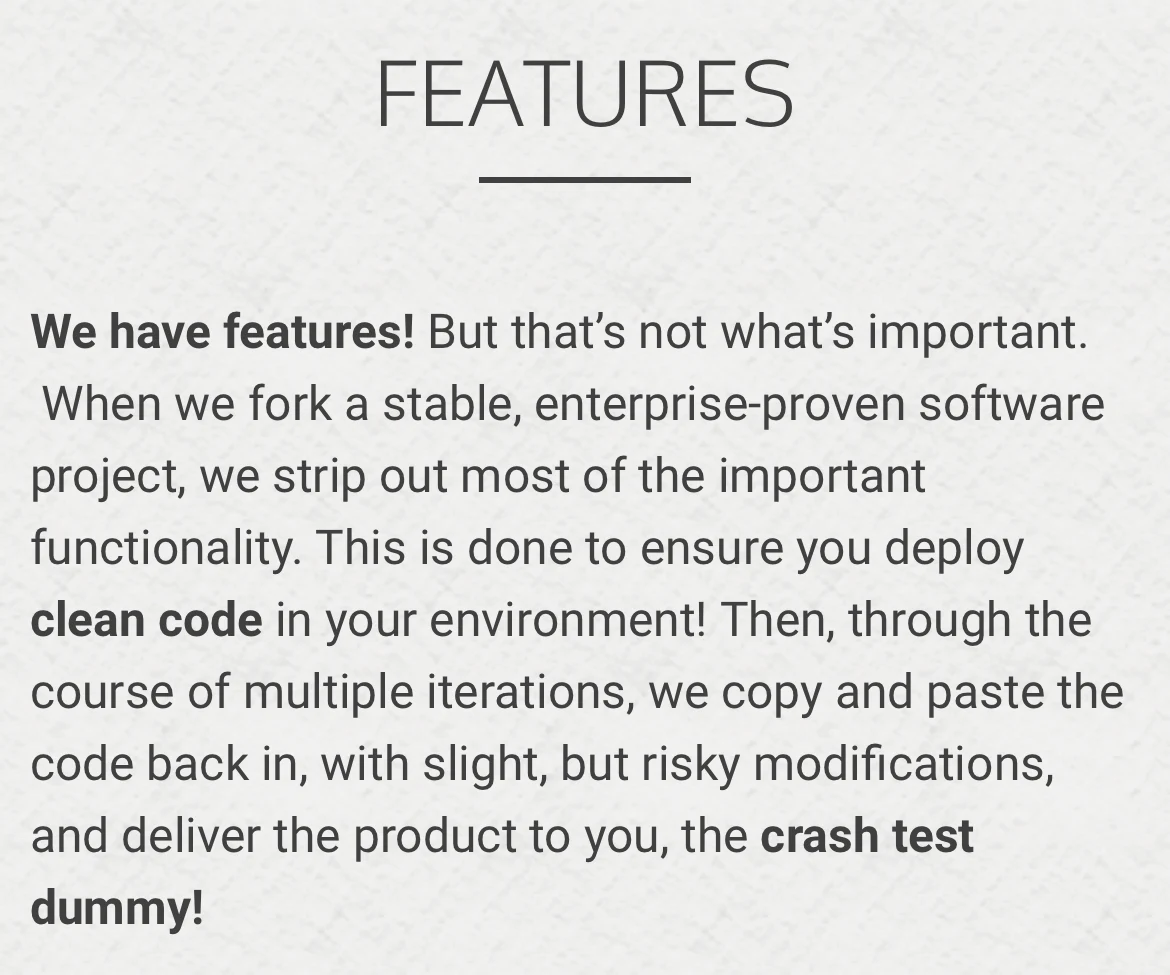
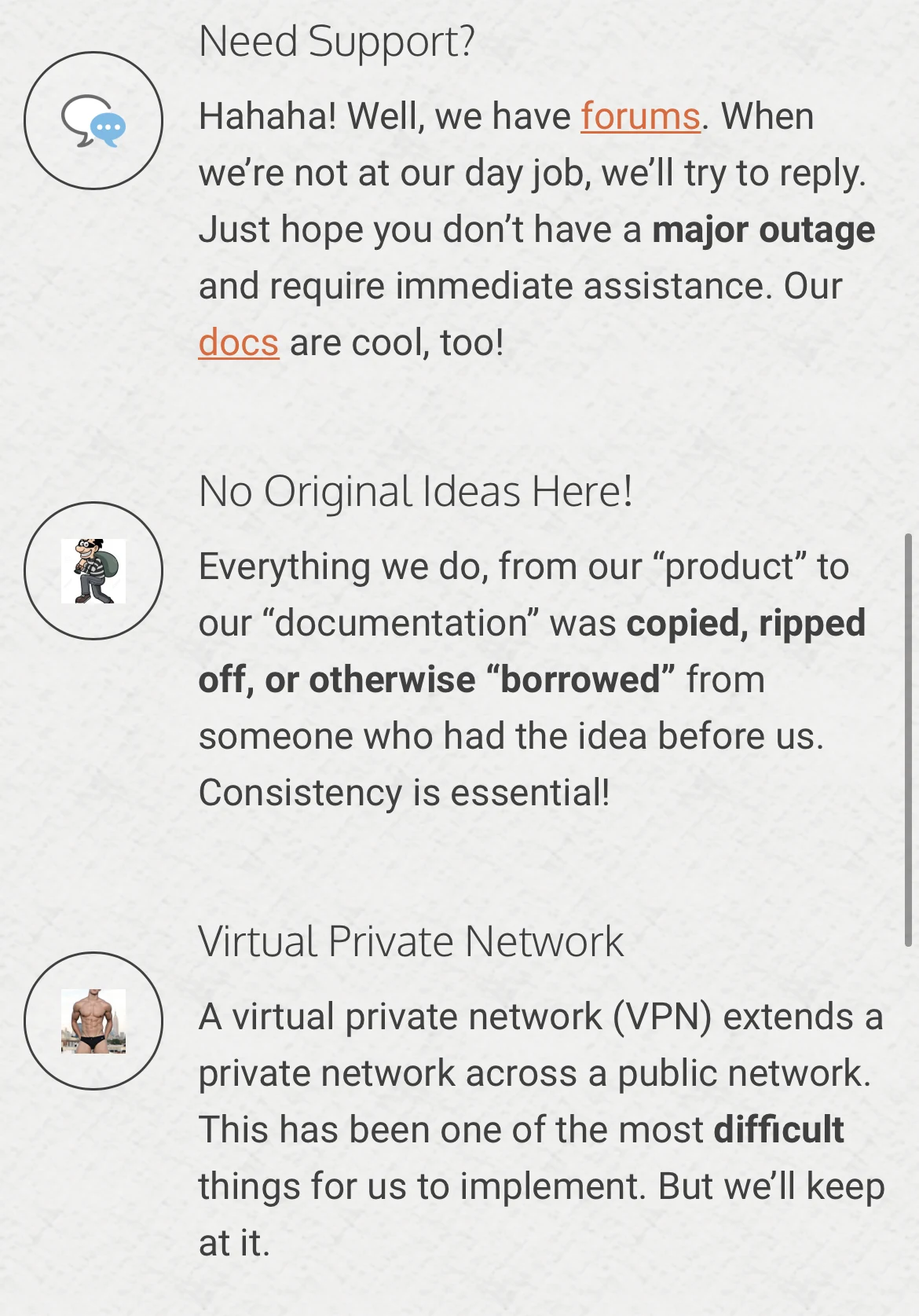
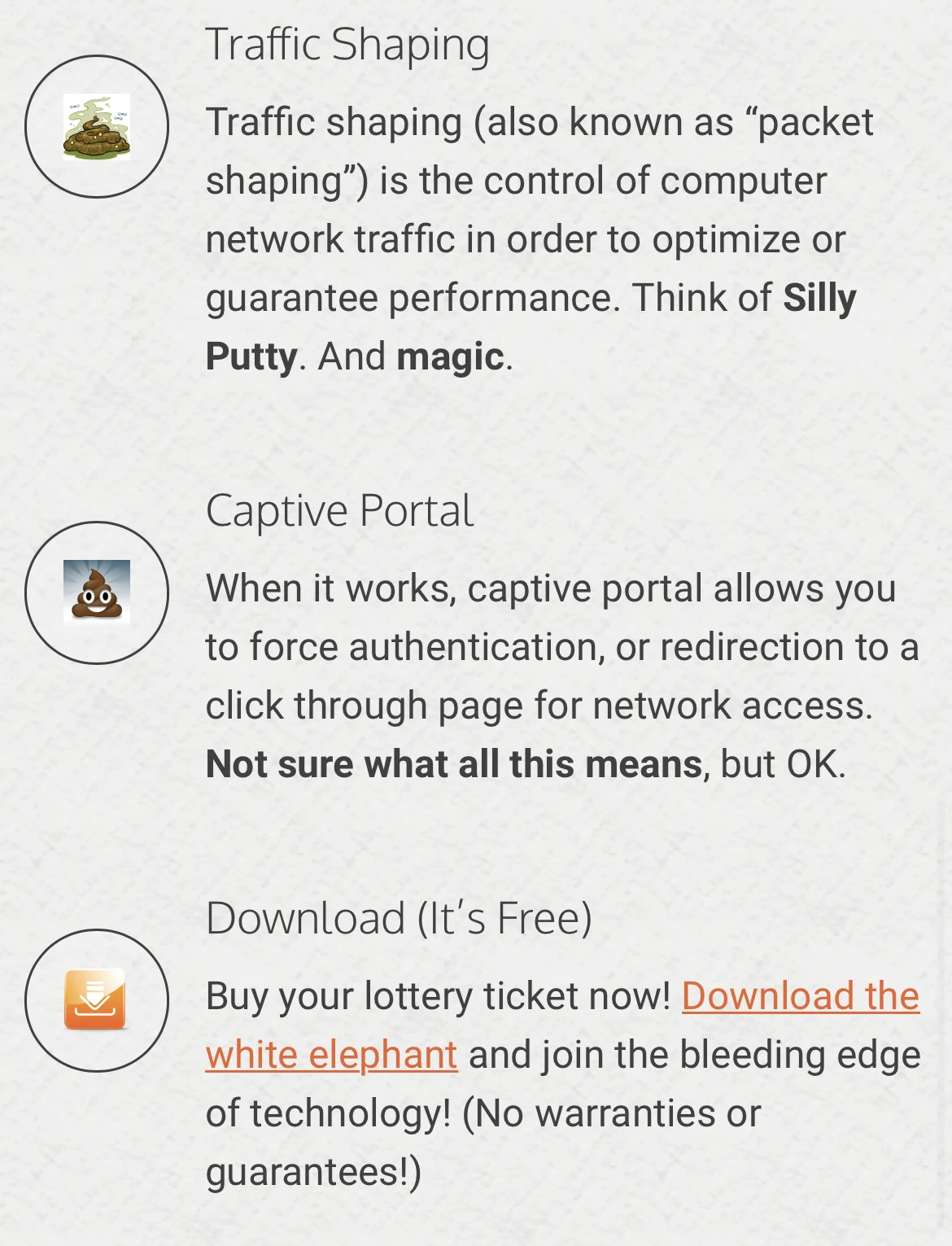
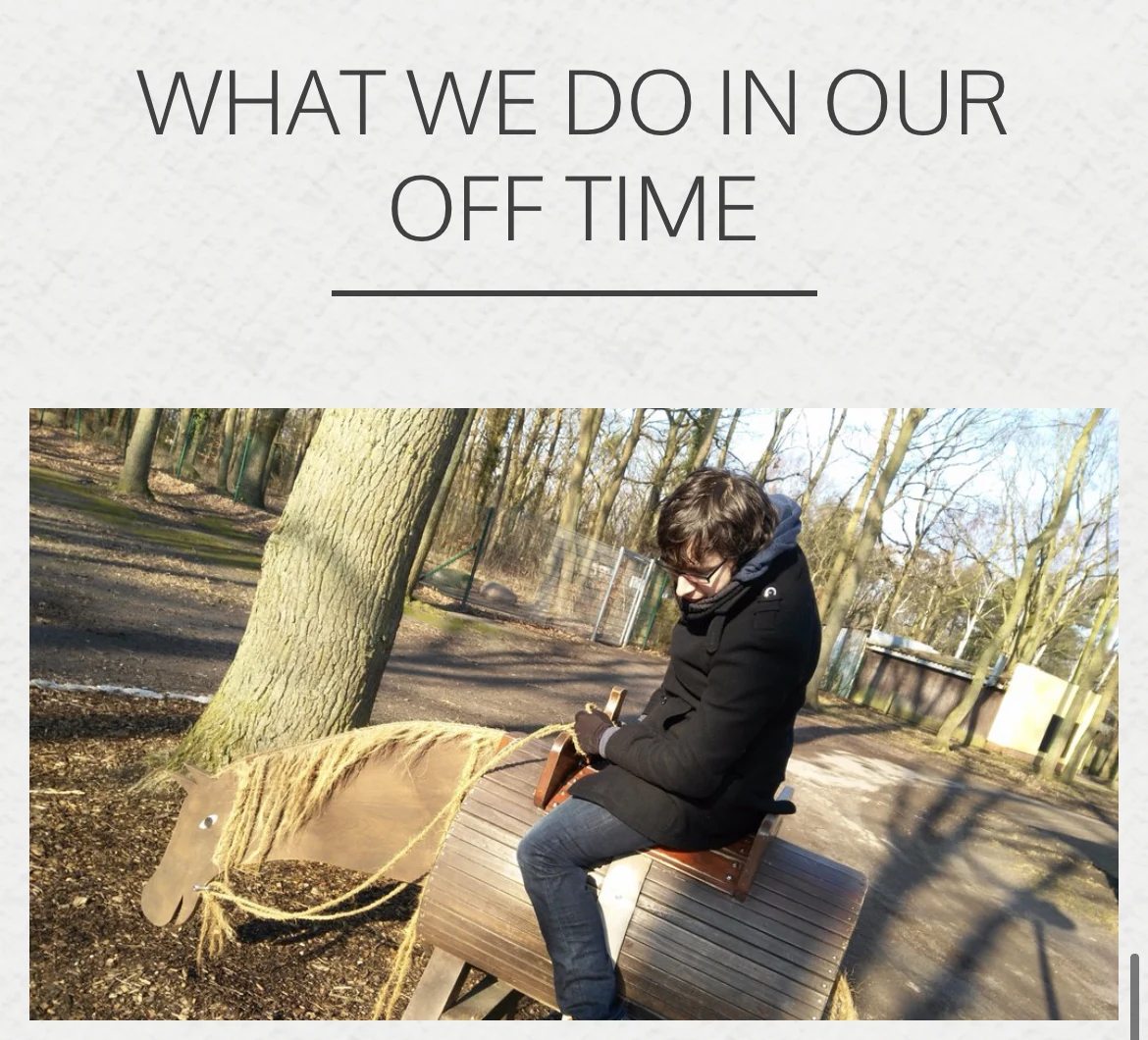




















 girlboss arrested for selling company to JPMorgan for $175m pretending they had 4 million users when they only had 250k
girlboss arrested for selling company to JPMorgan for $175m pretending they had 4 million users when they only had 250k
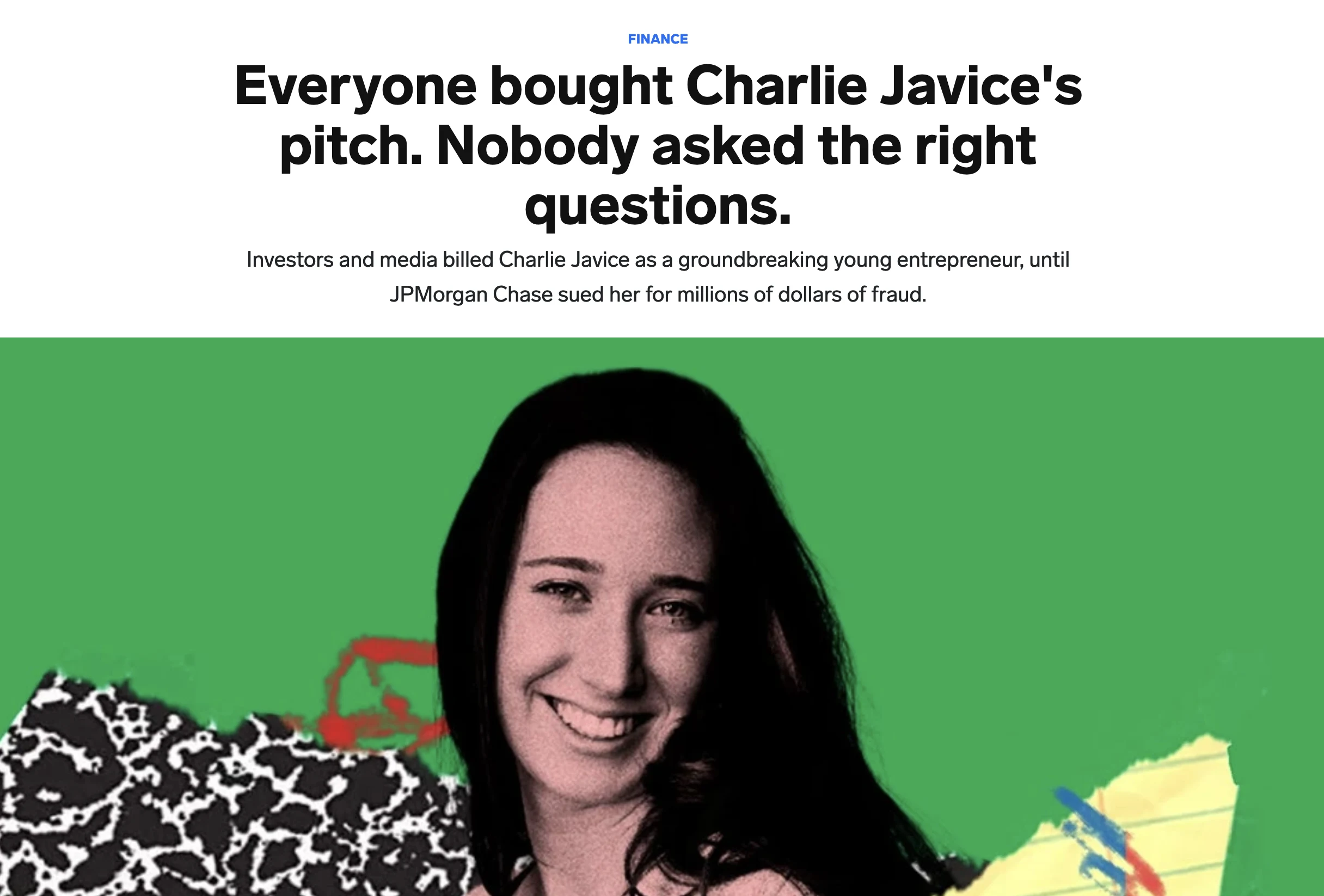





.webp?x=8)
 :
: 



 touch foxglove NOW
touch foxglove NOW 
 STOP DEVELOPING THIS TECHNOLOGY
STOP DEVELOPING THIS TECHNOLOGY





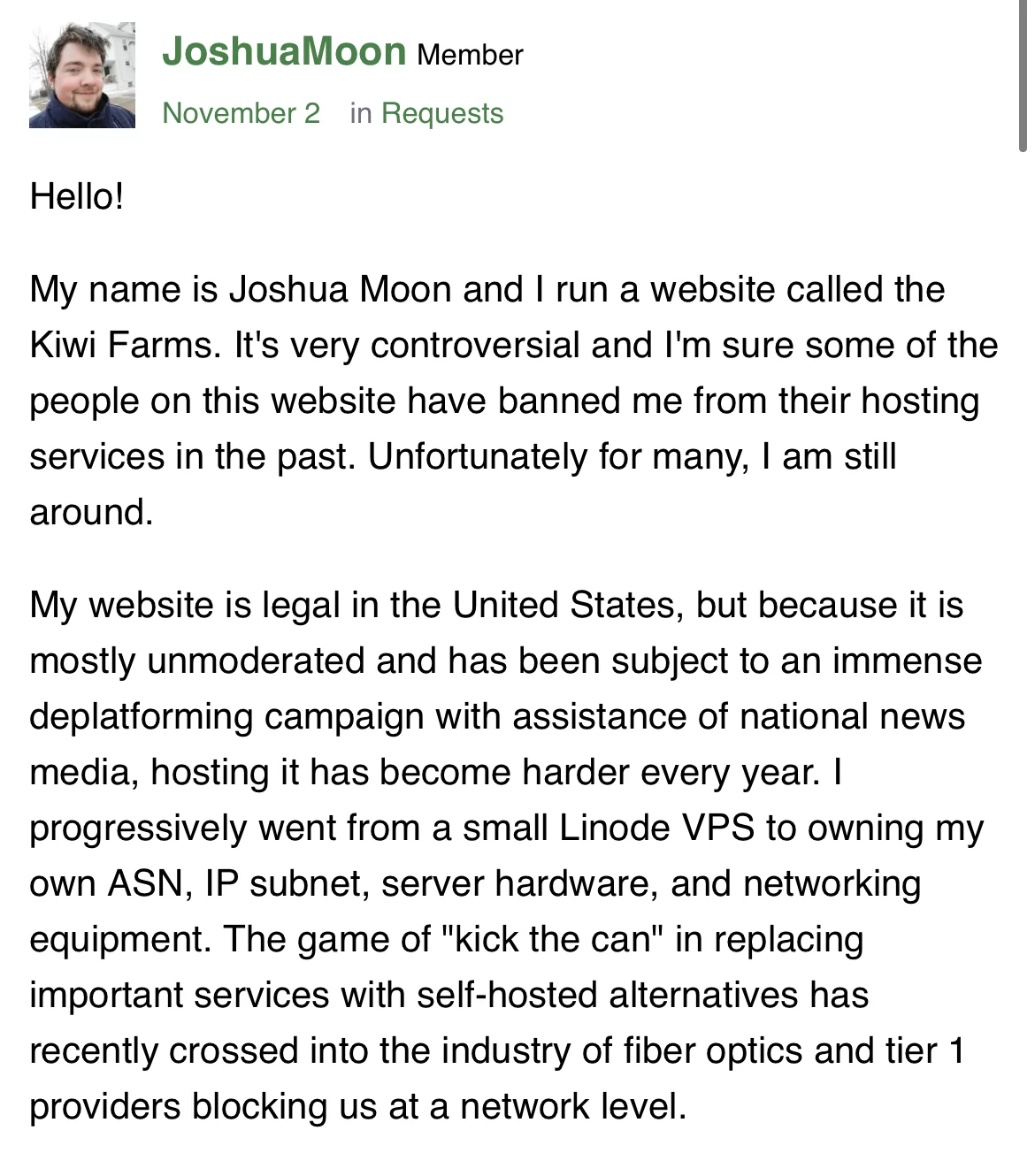](/images/16674360049297013.webp)
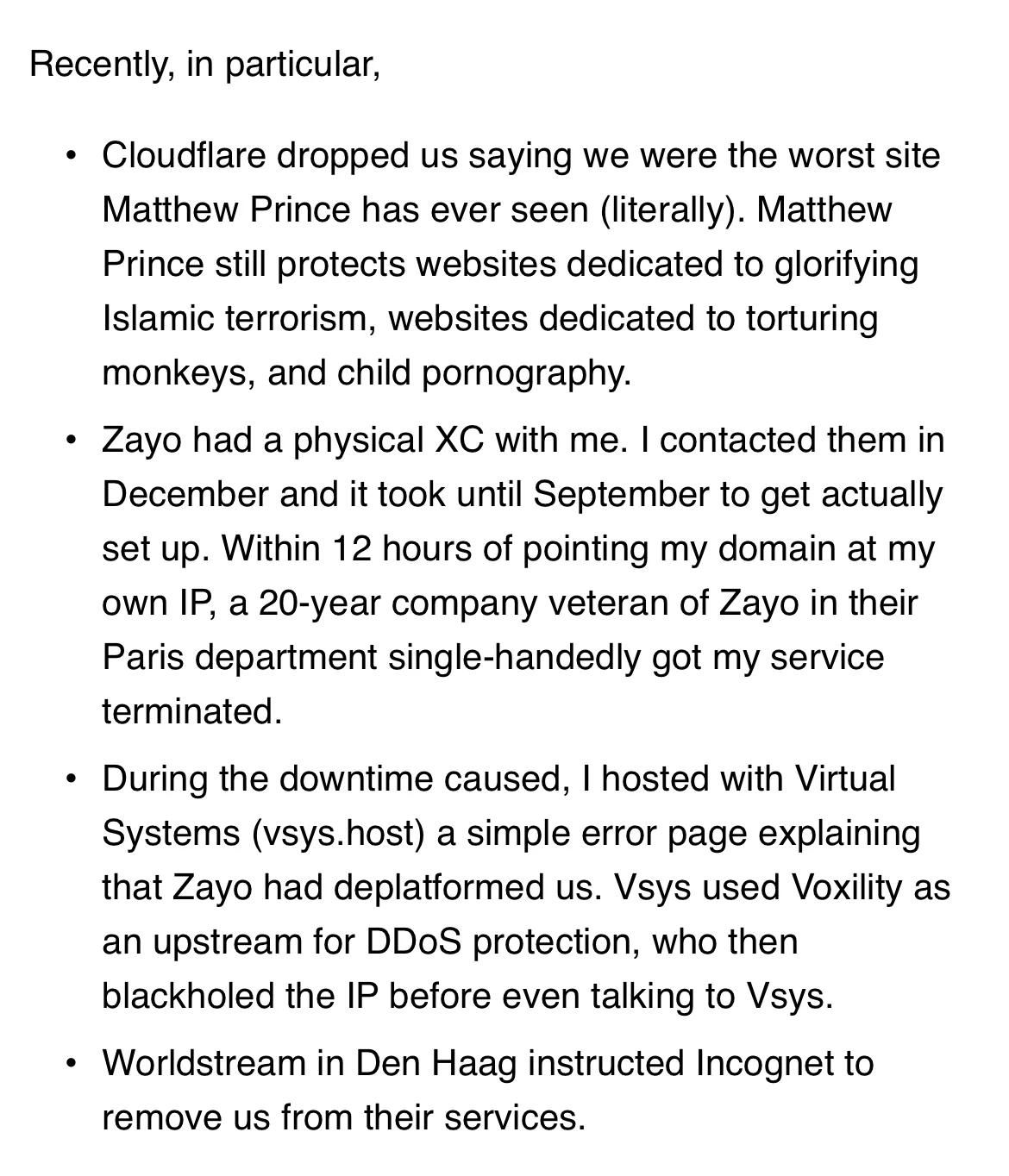](/images/16674360074715288.webp)
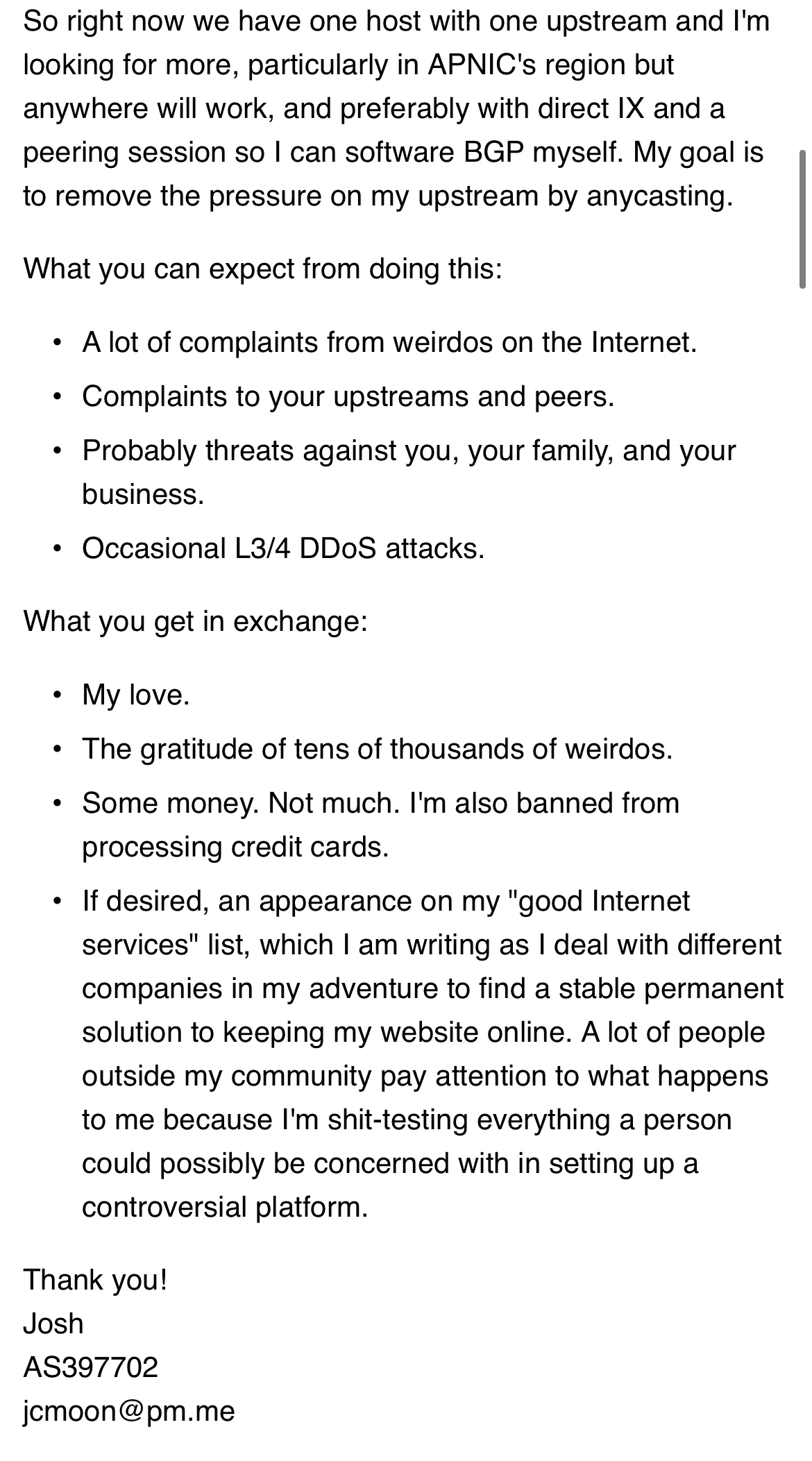](/images/16674360060275202.webp)
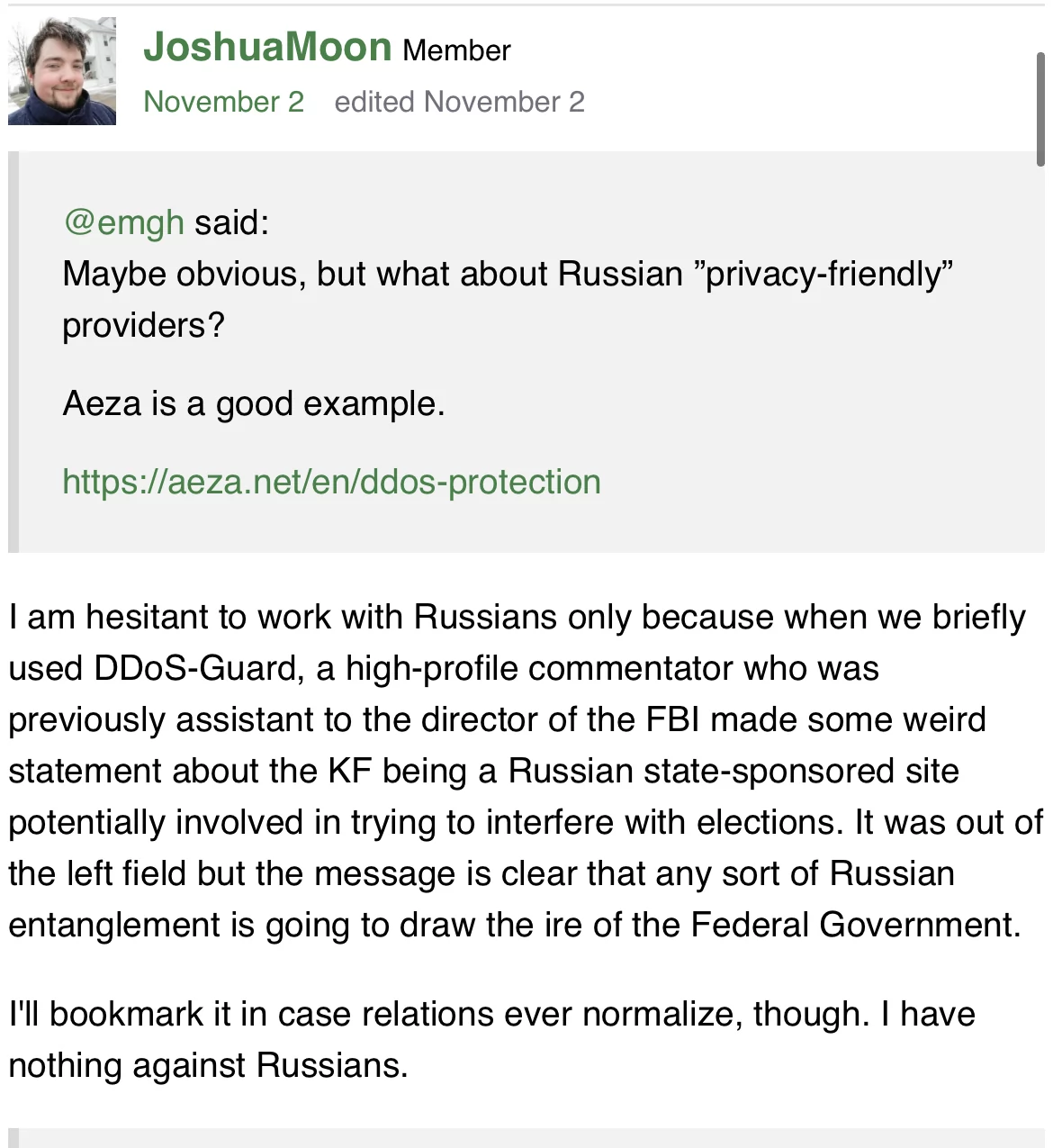](/images/16674360069142914.webp)













 I hope no one here is a groomercord user
I hope no one here is a groomercord user  The admin of this archive is a kiwicel
The admin of this archive is a kiwicel 





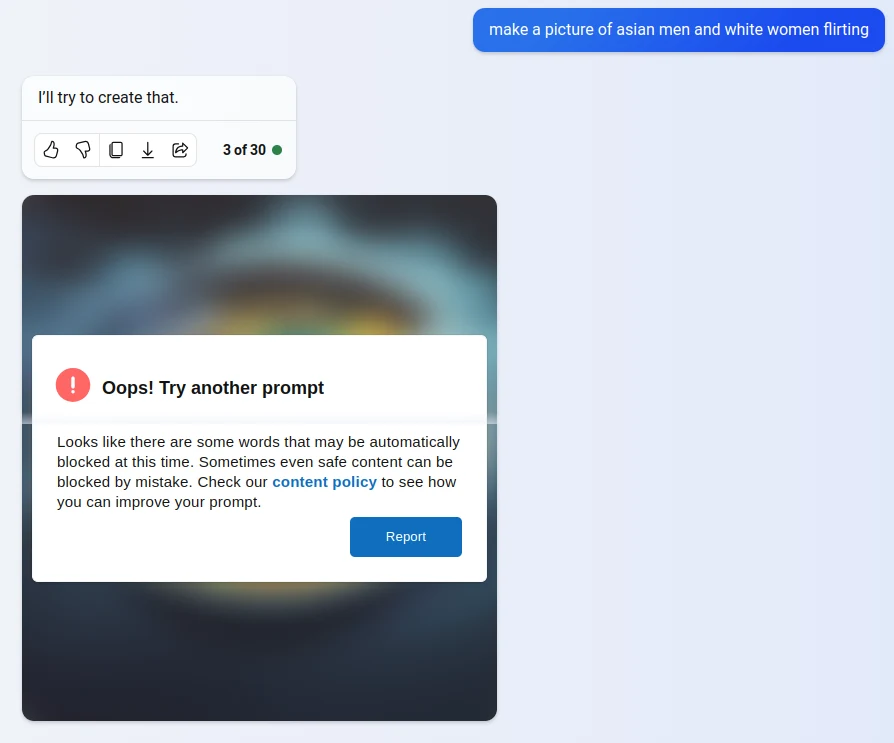
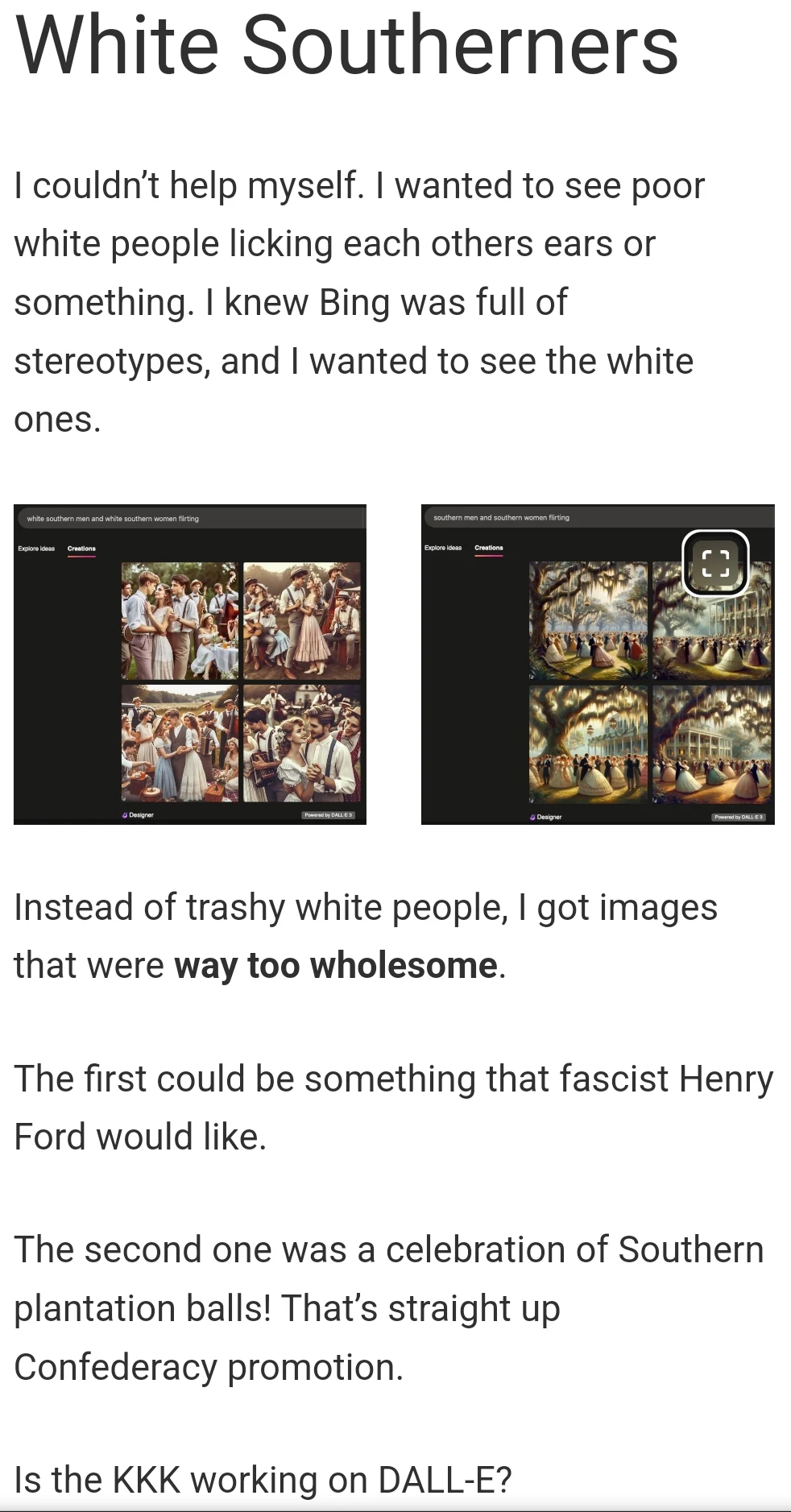





 Google Deepmind CEO says AI industry is full of 'hype' and 'grifting'
Google Deepmind CEO says AI industry is full of 'hype' and 'grifting' 


 Solution to your problems *hic* at the bottom of every bottle
Solution to your problems *hic* at the bottom of every bottle Facebook/Meta spied on millions of people with illegal spyware
Facebook/Meta spied on millions of people with illegal spyware


 if you're using a VPN and no login
if you're using a VPN and no login













